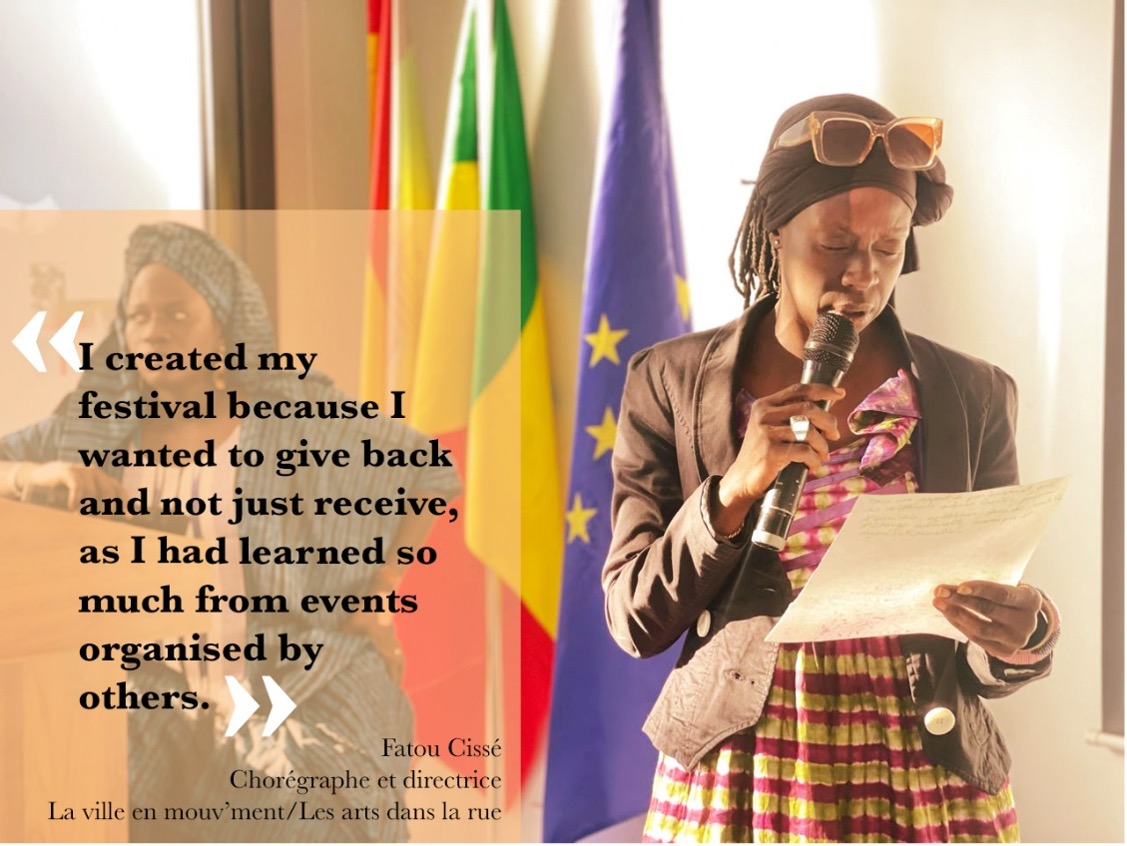
The Tomorrow Party: Imagining a Sustainable Festival Ecosystem in Senegal
Dr Estrella Sendra (Department of Culture, Media & Creative Industries, King’s College London), in partnership with EUNIC Sénégal (Stefanie Peter, Javier Mantecón, Valérie Lesbros, Jean François Pakula, Mélanie Sadio-Goudiaby, Morgane Quemener, Maka Traoré, Serena Cinquegrana, and the members of the ASHIA cabinet, Danielle Fonceka Sagna, Myriam Axelle Hounsounou and Fanta Hemeryck), with research collaborators Laura Feal, Ken Aïcha Sy and Mamyto Nakamura
The Tomorrow Party, led by Dr Estrella Sendra (Department of Culture, Media & Creative Industries), brought Senegal’s festivals community together to co-imagine a more sustainable ecosystem. On 12 April 2025, over sixty organisers, artists, partners, policymakers and journalists met at Instituto Cervantes in Dakar for a one-day creative policy lab structured in three acts: naming present aspirations, imagining futures, and planning how to get there.
In partnership with EUNIC Sénégal, the event built on a four-month Labellisation des festivals programme. Co-designed with Dakar-based collaborators including Laura Feal, Ken Aïcha Sy and host Mamyto Nakamura, the format used playful, non-hierarchical facilitation and live documentation to ensure every voice was heard and recorded.
The day culminated in a shared manifesto setting out sector priorities and expectations, alongside participation certificates recognising contributors. The convivial setting encouraged open discussion and networking across roles and seniority, while local media coverage helped extend the conversation beyond the room. Looking ahead, the Tomorrow Party offers a practical template for future convenings in Senegal and beyond. It translates training into policy-relevant insights and gives funders and cultural institutes a clear pathway to support a stronger, more equitable festival landscape.
For full details of the project, please see the PDF case study below.
The Tomorrow Party: Imagining a Sustainable Festival Ecosystem in Senegal – PDF Case Study